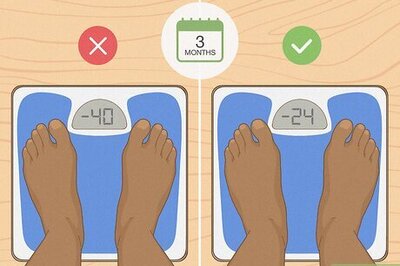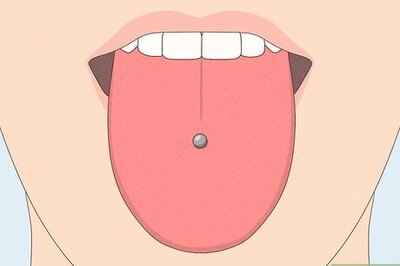
views
What you eat—and don’t eat—can have a powerful effect on your health, including your risk for developing cancer. While research tends to point to associations between specific foods and cancer, there are certain dietary habits that can have a major influence on your risk. Consuming nutrient-rich foods can help protect your body against cellular damage and boost your immune system.
Dr Meenu Walia, Vice Chairman- Medical Oncoloy (Breast, Gynaecology, Thoracic), Max Super Speciality Hospital, Patparganj explains the relationship between nutrition and cancer prevention:
Nutrition and Cancer Prevention
Incorporating Cancer-Fighting Foods
1. Antioxidant-Rich Foods
Antioxidants help neutralize free radicals, which can damage cells and lead to cancer. Incorporating a variety of fruits and vegetables into your diet is crucial. For instance:
– Fruits like berries, oranges, and guava are high in vitamin C and antioxidants.
– Vegetables such as broccoli, spinach, and carrots contain carotenoids that protect against cancer.
– Lycopene-rich foods like tomatoes and watermelon may reduce prostate cancer risk.
2. High-Fiber Foods
Fiber aids in keeping the digestive system clean and can help prevent colorectal cancer. Include:
– Whole grains like brown rice, quinoa, and oats.
– Fruits and vegetables with high fiber content.
– Legumes such as beans, lentils, and chickpeas.
3. Healthy Fats
While trans fats and saturated fats should be limited, healthy fats are beneficial.
– Unsaturated Fats: Found in olive oil, avocados, and nuts, these fats can help reduce inflammation and support overall health.
– Omega-3 Fatty Acids: Present in fish like salmon and tuna, and in flaxseeds, these fats can reduce inflammation and are essential for heart and brain health.
4. Using Herbs and Spices
Ingredients like garlic, ginger, turmeric, and rosemary not only add flavor but also have cancer-fighting properties.
Avoiding Harmful Foods
Certain foods can increase cancer risk and should be consumed in moderation. Studies have linked Processed and Red Meats to higher risks of various cancers. Opt for lean proteins such as fish, chicken, and plant-based options like tofu and legumes. Replace sugary and refined foods with whole grains and non-starchy vegetables to maintain a healthy weight and lower cancer risk.
Nutrition During Cancer Treatment
Maintaining proper nutrition during cancer treatment is challenging but vital. Treatment side effects like loss of appetite, taste changes, and nausea can make eating difficult. Eating small, frequent meals, choosing high-calorie, high-protein foods, and avoiding strong-smelling foods can help patients maintain their weight and strength.
Hydration is another important factor. Drinking plenty of fluids, such as water, herbal teas, and broths, helps maintain hydration levels and supports overall health. Aim for at least 8 cups of fluid daily, and more if experiencing side effects like vomiting or diarrhea.
Diet plays a crucial role in both the prevention and recovery of cancer. But It’s not just what you eat — it’s how much you eat! By making mindful food choices, incorporating a variety of nutrient-dense foods, and avoiding harmful ones, you can significantly impact your overall health and reduce your cancer risk.



















Comments
0 comment